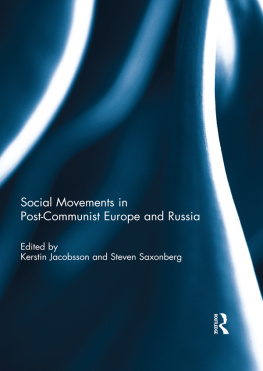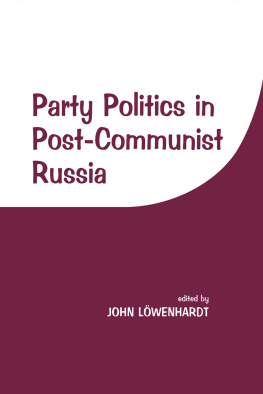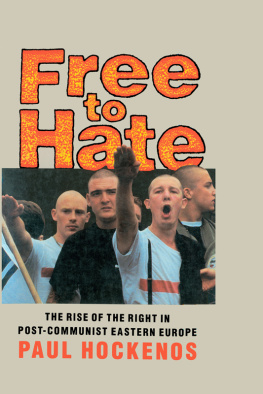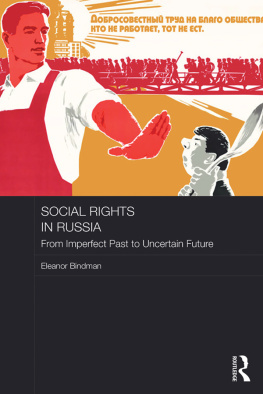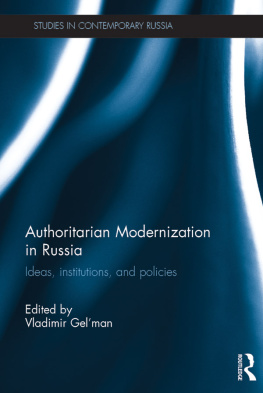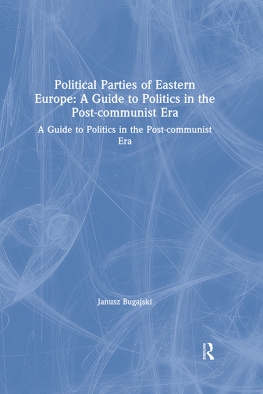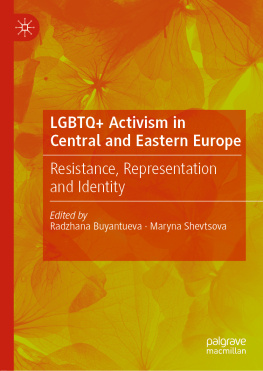Social Movements in Post-Communist Europe and Russia
This volume provides a much needed update on the state of civil society in post-communist Europe and Russia more than two decades after the fall of the communist regimes. The chapters offer new perspectives on social movement strategies in post-communist Central-Eastern Europe and Russia. The chapters illustrate how social movements develop particular repertoires of action and contention, which are better suited for their specific local contexts in the post-communist setting. In Russia and Poland, the use of domestic and transnational legal opportunities, judicial activism and litigation is a popular strategy complementing the traditional lobbying and mass mobilisation. Human rights framing has become important in Hungary and the Czech Republic. The chapters analyse various types of rights-based activism that operate in otherwise prohibitive social and political environments, thereby raising highly contentious issues, such as animal rights, environment and sustainability, human rights, womens rights, and gay rights activism. The contributions richly illustrate the often surprising and multiple ways in which transnational discourses and norm pressure are received, translated or resisted in the local contexts. Finally, the volume provides a novel reconceptualisation and offers new understandings of the relationships between the state and civil society in the post-communist context.
This book is based on two special issues of East European Politics.
Kerstin Jacobsson publishes widely in the field of political sociology, including studies of social movements in Central and Eastern Europe. Her most recent book is Beyond NGO-ization: The Development of Social Movements in Central and Eastern Europe (edited with Steven Saxonberg, Ashgate, 2013).
Steven Saxonberg has published extensively about the collapse of communism and the development of post-communist social policies and social movements. His recent books include Gendering Family Policies in Post-Communist Europe: A Historical-Institutional Analysis (Palgrave, 2014) and Transitions and Non-Transitions from Communism: Regime Survival in China, Cuba, North Korea, and Vietnam (Cambridge University Press, 2013).
First published 2015
by Routledge
2 Park Square, Milton Park, Abingdon, Oxon, OX14 4RN, UK
and by Routledge
711 Third Avenue, New York, NY 10017, USA
Routledge is an imprint of the Taylor & Francis Group, an informa business
2015 Taylor & Francis
All rights reserved. No part of this book may be reprinted or reproduced or utilised in any form or by any electronic, mechanical, or other means, now known or hereafter invented, including photocopying and recording, or in any information storage or retrieval system, without permission in writing from the publishers.
Trademark notice: Product or corporate names may be trademarks or registered trademarks, and are used only for identification and explanation without intent to infringe.
British Library Cataloguing in Publication Data
A catalogue record for this book is available from the British Library
ISBN 13: 978-1-138-78436-9
Typeset in Times New Roman
by Taylor & Francis Books
Publishers Note
The publisher accepts responsibility for any inconsistencies that may have arisen during the conversion of this book from journal articles to book chapters, namely the possible inclusion of journal terminology.
Disclaimer
Every effort has been made to contact copyright holders for their permission to reprint material in this book. The publishers would be grateful to hear from any copyright holder who is not here acknowledged and will undertake to rectify any errors or omissions in future editions of this book.
Contents
Kerstin Jacobsson and Steven Saxonberg
Kerstin Jacobsson and Steven Saxonberg
Katalin Fbin
Conor ODwyer
Kerstin Jacobsson
Ondej Csa
Christian Frhlich
Elena Chebankova
The chapters in this book were originally published in various issues of East European Politics . When citing this material, please use the original page numbering for each article, as follows:
Chapter 1
Introduction: A new look at social movements and civil society in post-communist Russia and Poland
Kerstin Jacobsson and Steven Saxonberg
East European Politics , volume 28, issue 4 (December 2012) pp. 329331
Chapter 3
Disciplining the Second World: the relationship between transnational and local forces in contemporary Hungarian womens social movements Katalin Fbin
East European Politics , volume 30, issue 1 (March 2014) pp. 120
Chapter 4
Does the EU help or hinder gay-rights movements in post-communist Europe? The case of Poland
Conor ODwyer
East European Politics , volume 28, issue 4 (December 2012) pp. 332352
Chapter 5
Fragmentation of the collective action space: the animal rights movement in Poland
Kerstin Jacobsson
East European Politics , volume 28, issue 4 (December 2012) pp. 353370
Chapter 6
The diffusion of public interest mobilisation: a historical sociology perspective on advocates without members in the post-communist Czech Republic
Ondej Csa
East European Politics , volume 29, issue 1 (March 2013) pp. 6982
Chapter 7
Civil society and the state intertwined: the case of disability NGOs in Russia
Christian Frhlich
East European Politics , volume 28, issue 4 (December 2012) pp. 371389
Chapter 8
State-sponsored civic associations in Russia: systemic integration or the war of position?
Elena Chebankova
East European Politics , volume 28, issue 4 (December 2012) pp. 390408
Please direct any queries you may have about the citations to clsuk.permissions@cengage.com
Kerstin Jacobssona and Steven Saxonbergb
a Department of Sociology and Work Science, University of Gothenburg, Sweden; b Centre for Social and Economic Strategies, Charles University, Czech Republic and Dalarna University College, Sweden
More than two decades since the revolutions of 1989 and the collapse of the Soviet Union in 1991, the development of social movements and civil society activism in post-communist countries remains a matter of considerable scholarly debate. Whilst earlier research tended to emphasise low levels of protest events and the weak and non-participatory nature of post-communist civil society in general (Mendelson and Glenn 2002, Howard 2003), more recent research has begun to re-evaluate this picture by illustrating the extent to which movement actors develop particular repertoires of action and contention, which are more appropriate for the opportunity structures available within these still young post-communist democracies (e.g. the contributions in Fagan and Carmin 2010, Jacobsson and Saxonberg forthcoming). For instance, it may make better sense to use more apolitical methods of campaigning in a country with a more closed state, rather than engaging in classical contentious politics. It might also be more efficient to fight issues in the courts, rather than trying to influence politicians. Moreover, it has been argued that social movement organisations in post-communist Europe, while less able to mobilise people into traditional forms of participatory activism, have been quite effective in so-called transactional activism. In other words, movement actors manage to build productive relationships with institutional actors in some cases (Petrova and Tarrow 2007, also Cisar 2010 and forthcoming). This symposium explores the extent to which this is true for all types of movements in each of the countries under study. While the dependent variable here is issue and movement type, the particular domestic political opportunity structure and resource availability are also highlighted as intervening in the efficacy of campaigns and actions. It appears immediately evident that the openness of public authorities for such collaboration depends on the types of movements in question and their claims.

